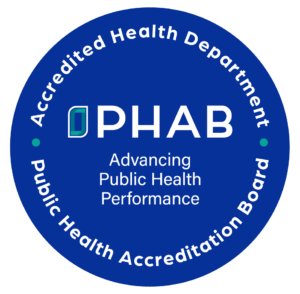Protecting The Water We Drink For Today And Tomorrow
The Union County Health Department works with homeowners to help protect the drinking water provided by roughly 9,000 private water systems within Union County, Ohio. Private water systems include wells, cisterns, holding tanks, springs and ponds used for drinking water. To protect these water systems, the Union County Health Department permits and inspects the installation of new systems, alterations to existing systems, and sealing of out of-service systems in accordance with Ohio Administrative Chapter 3701-28. Our sanitarians also collect water safety samples as required for new or altered systems or at the request of a homeowner.
NOTE: The Union County Health Department does not permit, safety sample, or enforce rules governing city/municipal drinking water systems. City/municipal water supplies are under the jurisdiction of the Ohio Environmental Protection Agency.
Start with a Permit Before You Install, Alter or Seal a Well or Private Water System
An Application for a Private Water System Permit must be filed with the Union County Health Department prior to digging a new well or installing another type of private water system, altering or repairing an existing system, or sealing/decommissioning a system no longer in use. This application and the associated permit fee is often submitted by a general contractor on behalf of the homeowner, but can be submitted by the homeowner. For new and altered wells, a water safety sample and final inspection of the system will need to be completed by our Environmental Health team to ensure the private water system meets Ohio rules and regulations designed to protect your drinking water..
Download the well permit application and view the fee schedule below to get started. Completed applications and fees can be dropped off or mailed to the Union County Health Department at 940 London Ave, Ste 1100, Marysville, Ohio 43040. Checks can be made out to the Union County Health Department. Credit card payments are accepted in-office Monday-Friday from 8am-4pm.
Water Safety Samples
Permits for installing or altering new wells or other private drinking water systems require water safety samples to protect the health of the homeowner. Water safety samples are collected by our sanitarians by appointment only. The sample is submitted to an Ohio EPA approved laboratory for testing. The cost of a water sample varies by what specific tests are required for permitting or requested by the homeowner. Please contact our office at 937.642.2053 for pricing and to book a water safety sample appointment. NOTE: water samples will not be taken if there is any indication chlorine following disinfection is still present in the water. An additional fee will be assessed to the applicant/owner if the water tests positive for chlorine.
Water safety samples can also be performed at the request of any Union County, Ohio homeowner with a well or other type of private drinking water system. Standard water safety samples do not determine the quality of your drinking water, rather test for known bacteria and other identified elements that can cause illness. Standard water safety samples test for specific contaminants, but a homeowner may opt to d. For water safety testing or water safety reports for city/municipal water systems, please direct questions to the city or municipality. City/municipal water systems fall under the jurisdiction of the Ohio Environmental Protection Agency.
Sealing Wells or Private Water Systems
Any well or cistern not currently in use, must be maintained in compliance with existing rules or properly sealed/decommissioned. An unused well or cistern that is not properly sealed/decommissioned can and has been a significant safety concern for children and other individuals who could fall into old wells. An application for a Private Water System Permit indicating sealing/decommissioning is required.
Download the well permit application view and fee schedule below to get started. Completed applications and fees can be dropped off or mailed to the Union County Health Department at 940 London Ave, Ste 1100, Marysville, Ohio 43040.
Altering Existing Wells or Private Water Systems
An alteration permit is required prior to altering an existing well in a pit or a buried seal. Alteration permits are also required when replacing a mobile home.
Disinfecting Your Well or Private Water System
Disinfecting or “shocking” your well or private water system is an important step in protecting your home’s drinking water. Disinfection is recommended before using a new well or system and after repairs have been made to an existing well or water system. Disinfecting or “shocking” your will is also recommended if your well has been flooded or otherwise suspected of contamination. Click below to download a guide to disinfecting your well.
How to Disinfect Your Well
- If you have a water softener it should be by-passed. Remove the well cap or the vent pipe or plug if the well is equipped with a sanitary well seal.
- Pour one gallon of household bleach (5.25% chlorine) directly into the well.
- Connect a hose to a house spigot and run water directly into the well until chlorine odor is present in the water. Run the water this way for 15 minutes.
- Shut off the water supply to the hose and proceed to systematically open each water fixture in the house. Let water run through each fixture until chlorine odor is present. Include both cold and hot water valves.
- Close all valves and pour another one gallon of bleach directly into the well. Recap the well or replace the vent pipe or plug. Leave all valves closed for a period of 12 hours or longer (toilets may be flushed if needed.)
- Open the hose spigot and discharge water to the ground surface or drainage ditch until chlorine odor disappears. Open every household fixture and let water run until the chlorine odor is gone.
- The well should now be properly disinfected.

